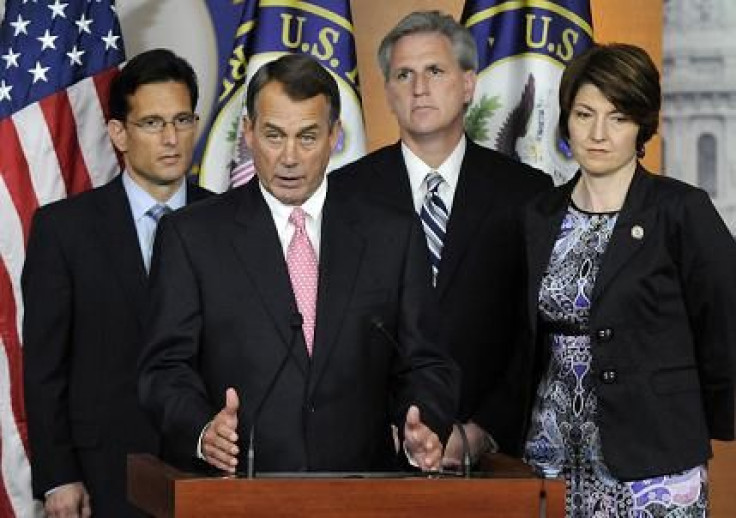Continuing Resolution 2013: Boehner 'Absolutely' Committed To Avoiding Government Shutdown

Now that the “dumb” sequester cuts, as the president calls them, are in place (at least for now), U.S. lawmakers have already shifted focus to the next fiscal deadline: a quick fix known as the continuing resolution.
House Speaker John Boehner, R-Ohio, said Sunday on NBC’s “Meet the Press” that he is “absolutely” committed to keeping the government open and avoiding a shutdown, which would occur if the current continuing resolution expires on March 27 without a plan for funding.
In place of an unofficial budget, the federal government is now running on the quick fix that gives the green light for spending. Should the resolution not be renewed, there would be another government shutdown, as in 1995, because of a lack of appropriations.
“We at the House next week will act to extend the continuing resolution through the end of the fiscal year, Sept. 30,” Boehner said on the Sunday talk show. “The president, this morning, agreed that we should not have any talk of a government shutdown, so I’m hopeful that the House and the Senate can work through this.”
There hasn’t been a formal budget for the past four years, leaving lawmakers governing in three-month increments and the nation bouncing from one fiscal crisis to another. The latest was the sequester, which took effect Friday and will force $85 billion in automatic spending cuts evenly between defense and domestic programs.
These manufactured crises keep arising because lawmakers cannot agree on how to rein in spending and a budget reduction plan that takes control of the $16 trillion national debt.
President Barack Obama has insisted on a "balance" of spending cuts and tax hikes to close the fiscal gap, but Republicans oppose any new revenue through taxes.
“I don’t think anyone quite understands how it gets resolved,” Boehner said. “After we do our continuing resolution, we’ll begin to work on our budget.
“[The Senate has] committed to do a budget this year and I hope that they do,” he said. “And out of that discussion, out of that process, maybe, maybe we can find a way to deal with our long-term spending problem.”
The speaker has said no one has worked harder than he to come to an agreement with the president and work on America’s “long-term spending problem.”
“It’s unfortunate and we’ve not been able to come to an agreement, but the House did its work to avoid the sequester, to avoid the random and automatic spending cuts,” he said on “Meet the Press.” “The fact is the president and Senate Democrats have done nothing to pass a plan to avert this and to deal honestly with the spending problem the country has.”
Senate Minority Leader Mitch McConnell, R-Ky., also said he believes a continuing resolution will pass “on a bipartisan basis.”
© Copyright IBTimes 2024. All rights reserved.












